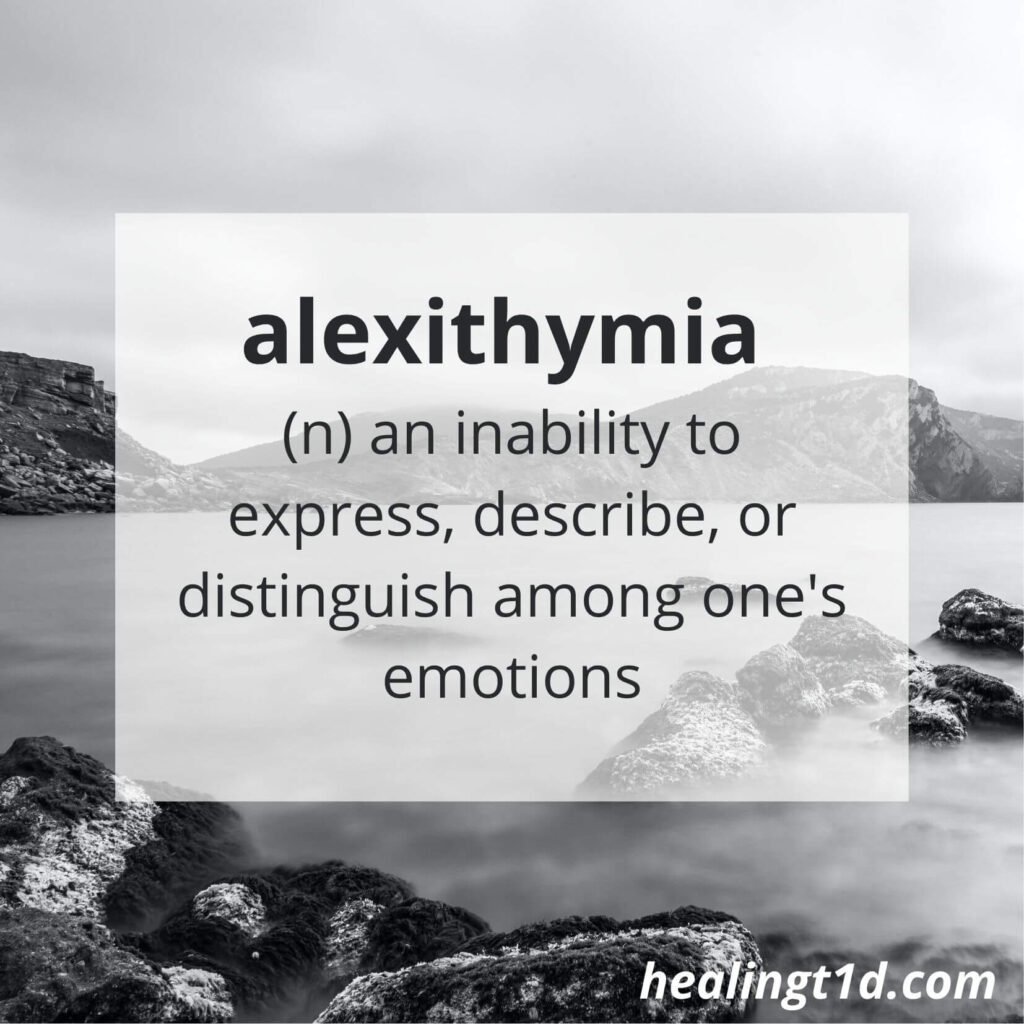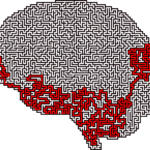Part 2 of the series ‘T1D As An Emotional Response’

Summary: This article discusses the concept of alexithymia, the inability to express emotions, and its potential link to Type 1 Diabetes (T1D) development. Referring to research and personal observations, the author suggests unexpressed emotions, particularly anger, could contribute to T1D onset. They explore academic studies hinting at a correlation between alexithymia and T1D, highlighting the complexity of emotional processing in diabetes management.
I was first drawn to the work of Dr Kelly Turner when I read her book ‘Radical Remission’. This book outlined nine key factors involved in spontaneously healing from cancer. I believe that Dr Turner actually identified factors that aid the body’s ability to heal from anything, not just cancer. I wrote a post on it here.
Whilst I was reading up on Dr Turner’s research, I came across her PhD thesis. It contains a paragraph of text that I find completely fascinating. The paragraph is a verbatim transcript from a Japanese oncologist explaining this theory on how cancer is caused. He states:
"Cancer is the rear end [final consequence] of alexithymia - losing the sensation of the expression of feelings/emotions... atherosclerosis, hypertension, diabetes... all of them same issue - all come from alexithymia." (Turner, 2010).
What Is Alexithymia?

So the Japanese oncologist’s belief is that emotional issues, particularly lack of emotional expression, results in medical conditions like cancer and diabetes.
Is There Scientific Support for Type 1 Diabetes Resulting From Alexithymia?
Whilst there are no studies proving that T1D results from alexithymia, there are several academic studies that hint at this relationship. Here are a few as examples:
The rates of alexithymia in people currently undergoing T1D seem to range from 22% to 65% in these studies.
More Weight For My Theory For How Type 1 Diabetes Develops
I have been theorising for a while that Type 1 Diabetes can result from unexpressed emotions, particularly unexpressed anger. If a person has a traumatic event take place in their life and they are unable to express how they feel about it, they will keep these emotions inside and the body will need to find a different way to deal with them. Having alexithymia will definitely decrease a person’s ability to express and process any such emotions.
If it is the case that unexpressed emotions cause Type 1 Diabetes, a higher rate of alexithymia would be expected in this population. Saying that, I would not expect it to be a 100% correlation because there is also likely to be a percentage who are generally good at identifying and expressing their emotions (i.e. do not suffer from alexithymia) but, during the time leading up to their T1D diagnosis were prevented from expressing emotions in their usual way. I can think of a couple of examples to illustrate this. Firstly, I once met a person undergoing Type 1 Diabetes who became diabetic not long after her mother went back to work. Her mother had been her main emotional support so, with her mother’s absence, she was unable to process the emotions resulting from her mother’s return to work. At the time, this child felt abandoned by her mother and, due to her mother being at work, was unable to express it.
Secondly, I became aware of another Type 1 Diabetic whose father died suddenly and unexpectedly. He was angry with his father’s sudden disappearance. [Anger is a completely normal emotion following the death of someone and is the third of seven stages outlined in the well-known ‘Seven Stages of Grief’ by Elisabeth Kübler-Ross, M.D.] He was unable to process this anger with anyone in his grieving family and therefore the body processed it through a Type 1 Diabetes diagnosis one year later.
Some Caveats…
Of course, there are factors that need to be taken into account with the academic finding that there is a link between Type 1 Diabetes and alexithymia. Firstly, it is not clear whether the alexithymia is present before, or develops after, the Type 1 Diabetes diagnosis. I can remember many times as a child that I had to ‘suck it up’ when it came to the unfairness of the condition or the problems I had to endure. Having emotions just got in the way of handling diabetes and therefore I intuitively sidelined them.
Another potential cause of alexithymia, that would result in it occurring after the T1D diagnosis, is diabetes burnout. As anyone with T1D knows, managing T1D is highly demanding and can take more energy and life force out of you than you can muster on any given day. When it all gets too much, you can’t take a day off diabetes care so the only option that is really left is mentally checking out. Alexithymia could be the consequence of that.
Whilst no firm conclusions can be drawn from these articles on the relationship between alexithymia and the onset of Type 1 Diabetes, I do find it interesting that there are more than a handful of people asking questions in this area. I suspect that our intuitions are guiding us towards something that, as yet, we haven’t been able to nail down!
References:
Turner, K. A. (2010). Spontaneous Remission of Cancer: Theories from Healers, Physicians, and Cancer Survivors. [Doctoral Dissertation, UC Berkeley]. UC Berkeley Electronic Theses and Dissertations. https://escholarship.org/uc/item/3px3w4g9.

GET HEALINGT1D’S FUTURE ARTICLES IN YOUR INBOX!
Get the latest musings and findings straight to your email inbox.

Natalie is a blogger with Type 1 Diabetes. Natalie's special gifts are questioning the status quo and being a rebel. She is using these gifts to question medical 'knowledge' and find a true cure for Type 1 Diabetes.
Recent Comments:
- Sandra on Nutrition Update
- latestModapks on Daniel Darkes
- Natalie Leader on Daniel Darkes
- Senna on Daniel Darkes
- Sandra on High Blood Pressure




